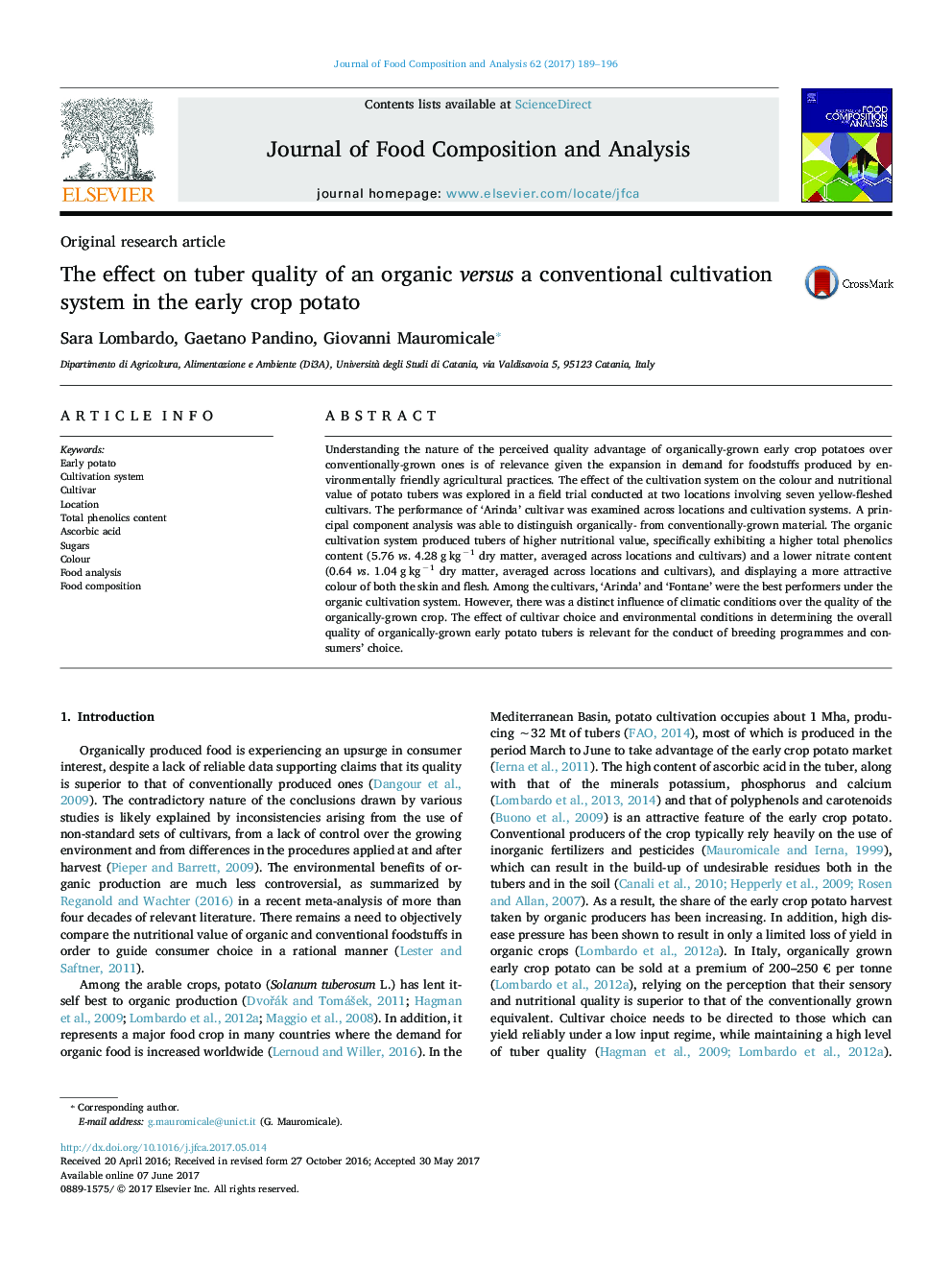| Article ID | Journal | Published Year | Pages | File Type |
|---|---|---|---|---|
| 5136875 | Journal of Food Composition and Analysis | 2017 | 8 Pages |
â¢The effect of organic farming on the tuber quality of early potato was explored.â¢PCA distinguished organically- from conventionally-grown tubers.â¢Organically grown tubers exhibited higher total phenolic and lower nitrate level.â¢Cultivar choice and growing conditions determined the quality of organic tubers.
Understanding the nature of the perceived quality advantage of organically-grown early crop potatoes over conventionally-grown ones is of relevance given the expansion in demand for foodstuffs produced by environmentally friendly agricultural practices. The effect of the cultivation system on the colour and nutritional value of potato tubers was explored in a field trial conducted at two locations involving seven yellow-fleshed cultivars. The performance of 'Arinda' cultivar was examined across locations and cultivation systems. A principal component analysis was able to distinguish organically- from conventionally-grown material. The organic cultivation system produced tubers of higher nutritional value, specifically exhibiting a higher total phenolics content (5.76 vs. 4.28 g kgâ1 dry matter, averaged across locations and cultivars) and a lower nitrate content (0.64 vs. 1.04 g kgâ1 dry matter, averaged across locations and cultivars), and displaying a more attractive colour of both the skin and flesh. Among the cultivars, 'Arinda' and 'Fontane' were the best performers under the organic cultivation system. However, there was a distinct influence of climatic conditions over the quality of the organically-grown crop. The effect of cultivar choice and environmental conditions in determining the overall quality of organically-grown early potato tubers is relevant for the conduct of breeding programmes and consumers' choice.
